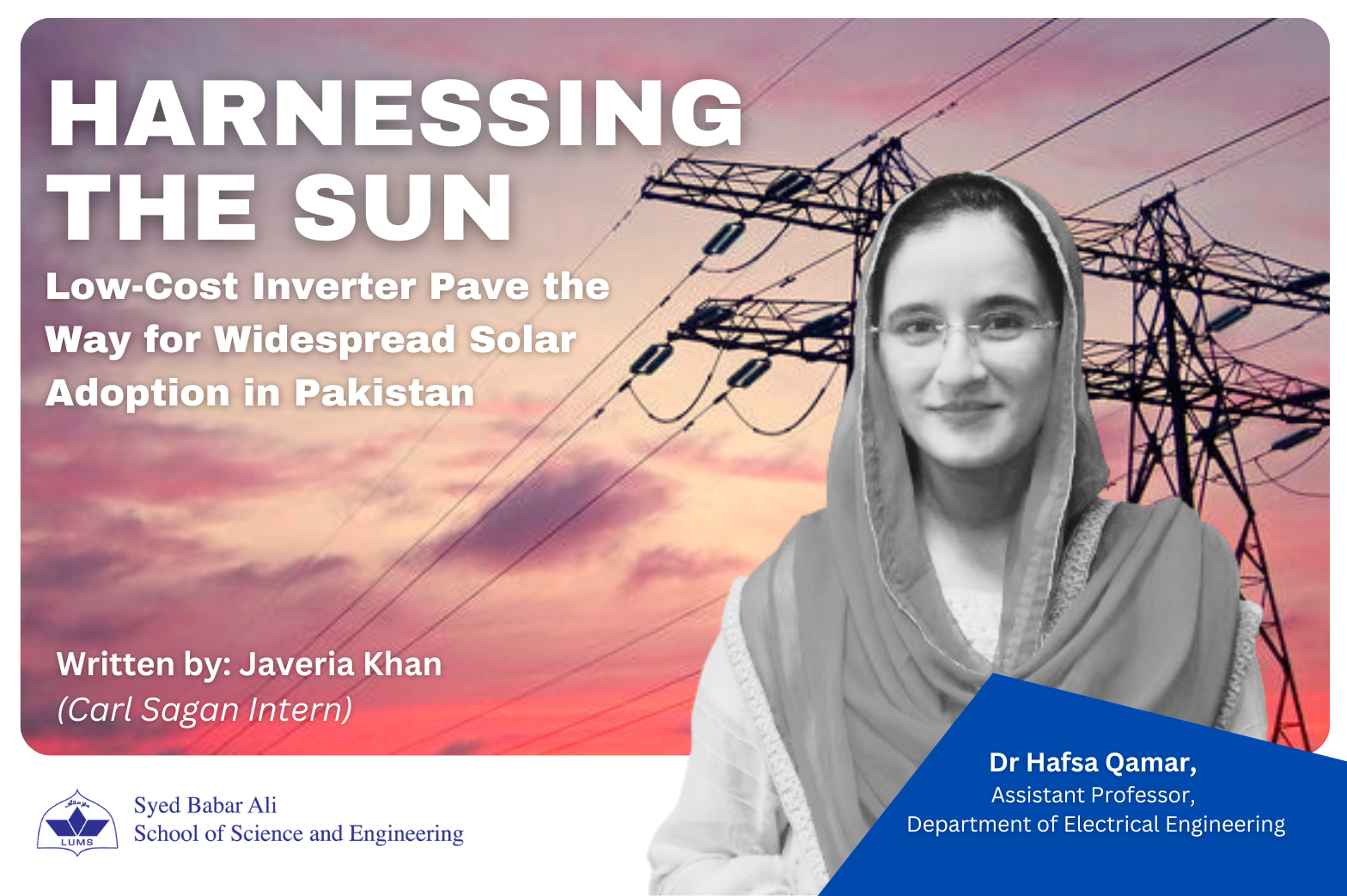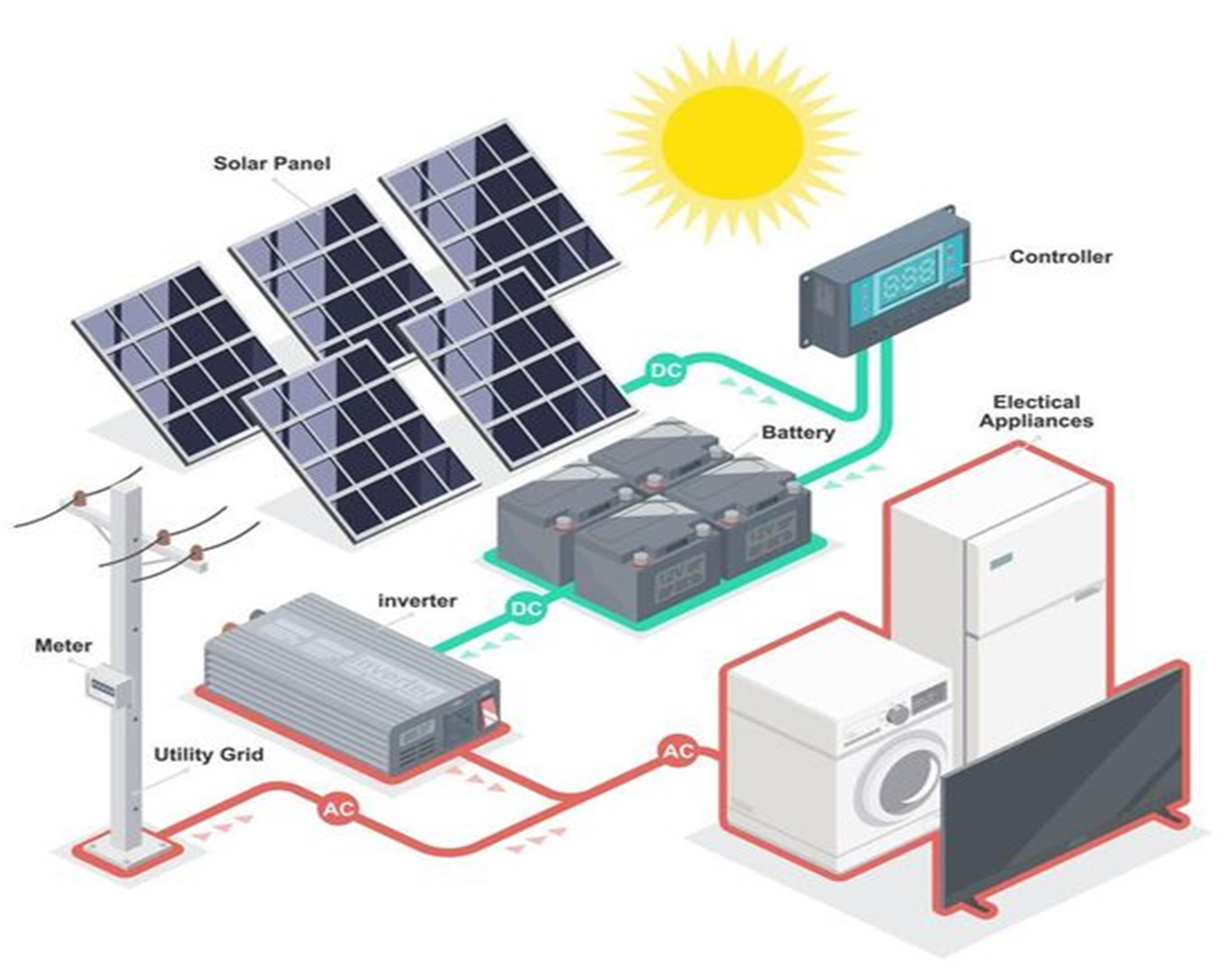
Harnessing the Sun - Low-Cost Inverter to Pave the Way for Widespread Solar Adoption in Pakistan
Dr Hafsa Qamar, an Associate Professor at the EE department, along with her collaborators Professor Nauman Ahmad Zaffar from SBASSE and Dr Haleema Qamar from Habib University serving as Co-Principal Investigators (Co-PIs), set out to develop affordable, locally manufactured inverters to address the energy crisis in Pakistan and combat the high component costs of solar energy.
Their dedication to this cause received a significant boost as their research project secured significant backing from the Higher Education Commission Rapid Technology Transfer Grant (HEC-RTTG), amounting to a funding of 10.6 million PKR. This grant will provide essential funding and support for the team, allowing them to accelerate the development of the much-needed inverters and bring them closer to realisation.
In Pakistan, the expense of electricity is reaching unprecedented heights, resulting in hardships for numerous families who face difficulty in managing their electricity expenses. This has led to a growing trend of individuals adopting solar panels as an alternative solution. Solar panels harness the ample sunlight available in the region, providing households with a sustainable and cost-effective source of energy. But here's the catch: pretty much every component of the solar panels, like the plates and inverters, is being imported, increasing the initial cost.
The inverter initiative led by Dr Hafsa Qamar stands as a proud moment for Pakistan, showcasing the nation's determination to harness its untapped potential and drive self-reliance. While inverters are just one component of the system, this endeavour paves the way for a comprehensive approach to local manufacturing, marking the beginning of a trend where local solutions take centre stage in addressing critical challenges.
As power electronic engineers, Dr Hafsa along with her collaborators are set out to pioneer an indigenous, low-cost inverter by locally sourcing materials and manufacturing them within Pakistan. This will cut costs and make it possible for citizens to afford clean solar energy.

The significant backing from the Higher Education Commission Rapid Technology Transfer Grant (HEC-RTTG) has provided the crucial support needed to propel the project forward. Following the approval and disbursement of the grant, the team will commence the six-month timeline dedicated to the project's execution. Within the six months, their objective is to design, test, and finalise the development of the inverter with a hardware prototype as their main deliverable.
In an interview, Dr Hafsa emphasised the pressing need to bridge the gap between academia and industry in Pakistan. She highlighted how collaboration between the two sectors could lead to innovation and progress, particularly in addressing complex challenges like the energy crisis. She said, “Once we reach a point of efficient and effective collaboration between academia and industry, the industry would be more willing to incorporate what our academia is working on.”
According to her, the industry must actively involve academic professionals to thrive and excel. She envisions a future where academia and industry work hand in hand, leveraging each other's strengths to drive meaningful change and propel Pakistan towards a brighter future.

